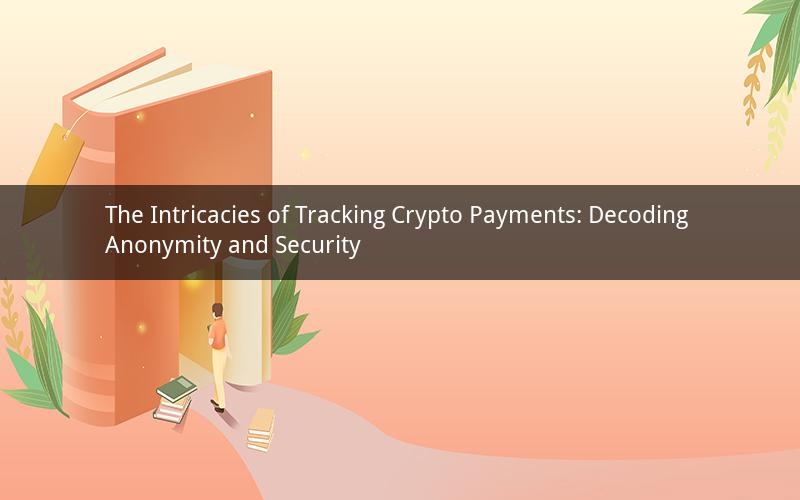
The world of cryptocurrency has revolutionized the way we perceive transactions. With its decentralized nature, it has gained immense popularity, primarily due to its ability to offer users privacy and security. However, the question arises: Can crypto payments be tracked? In this article, we delve into the depths of this query, exploring the various aspects of tracking crypto payments, the implications, and the tools available to do so.
Understanding Crypto Payments
Crypto payments refer to transactions made using digital currencies like Bitcoin, Ethereum, and Litecoin. Unlike traditional transactions, crypto payments operate on a decentralized network known as blockchain. Each transaction is recorded on a public ledger, making it transparent to all participants in the network.
Anonymity in Crypto Payments
One of the primary reasons why individuals opt for crypto payments is the anonymity they offer. Unlike credit card or bank transactions, crypto payments do not require any personal information such as your name, address, or phone number. This feature allows users to conduct transactions without revealing their identity, making it a popular choice for individuals who value privacy.
Can Crypto Payments Be Tracked?
While crypto payments offer anonymity, it is essential to understand that they are not entirely untraceable. There are several methods and tools available that can help track crypto payments. Here's a closer look at some of them:
1. Blockchain Analysis: Blockchain analysis involves examining the transaction history of a cryptocurrency. By analyzing the blockchain, individuals or entities can track the movement of funds and identify the sender and recipient of the transaction.
2. Public Addresses: Crypto transactions are made using public addresses. These addresses are alphanumeric strings that act as identifiers for wallets. By tracking the public address, it is possible to monitor the flow of funds and identify the parties involved in the transaction.
3. Mixers: Some cryptocurrencies offer mixing services, which allow users to combine their funds with those of others to obfuscate the transaction trail. However, these services are not foolproof, and skilled blockchain analysts can still trace the funds to their original source.
4. Legal and Governmental Measures: Governments and law enforcement agencies around the world are working to track and regulate crypto payments. By imposing regulations and requiring exchanges to comply with Know Your Customer (KYC) and Anti-Money Laundering (AML) policies, authorities can gain access to transaction data and track crypto payments.
Implications of Tracking Crypto Payments
The ability to track crypto payments has several implications:
1. Privacy Concerns: Individuals who value their privacy may feel uncomfortable knowing that their transactions can be monitored.
2. Security: The ability to track payments can help in detecting and preventing fraudulent activities and money laundering.
3. Legal and Tax Compliance: Governments may use this data to ensure that individuals comply with tax laws and regulations.
Frequently Asked Questions
1. Q: Is it possible to completely anonymize crypto payments?
A: While it is challenging to achieve complete anonymity, using privacy-focused cryptocurrencies and mixers can help in maintaining a higher level of privacy.
2. Q: Can law enforcement agencies track every crypto transaction?
A: No, law enforcement agencies can track certain transactions, but the decentralized nature of cryptocurrencies makes it difficult to monitor all transactions.
3. Q: Are crypto payments safer than traditional transactions?
A: Crypto payments offer enhanced security, as they are based on blockchain technology. However, users should remain vigilant against phishing scams and other fraudulent activities.
4. Q: Can I use crypto payments for illegal activities?
A: Yes, it is possible to use crypto payments for illegal activities. However, it is essential to understand that law enforcement agencies are working to track and prevent such activities.
5. Q: Are there any risks associated with using crypto payments?
A: Yes, there are risks associated with using crypto payments, such as market volatility, security vulnerabilities, and the potential for fraud.
In conclusion, while crypto payments offer anonymity and privacy, they are not entirely untraceable. The various methods and tools available for tracking crypto payments highlight the ongoing efforts to ensure security and legal compliance. As the world continues to embrace cryptocurrency, it is crucial to understand the implications and risks associated with using this technology.